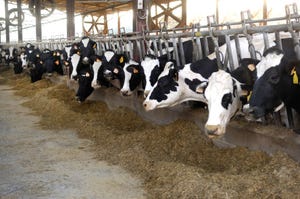Unanimous decision confirms landowners have right to seek judicial review when their property is designated as wetlands under Clean Water Act.

The U.S. Supreme Court ruled in our favor of private landowners in the case of United States Corps of Engineers vs. Hawkes, laying a precedent-setting victory for private property rights. The groundbreaking decision accepted Pacific Legal Foundation’s (PLF) arguments that landowners have a right to seek judicial review when their property is designated as wetlands subject to federal jurisdiction under the Clean Water Act.
After the federal government wrongly says a property contains wetlands subject to federal jurisdiction under the Clean Water Act, a landowner has only three alternatives: abandon the property, embark on a costly and lengthy permit process that isn’t needed or use the property and risk huge fines or even incarceration.
“Today’s ruling marks a long-awaited victory for individual liberty, property rights and the rule of law,” said PLF principal attorney M. Reed Hopper, who successfully argued the case in front of the justices. “For more than 40 years, millions of landowners nationwide have had no meaningful way to challenge wrongful application of the federal Clean Water Act to their land. They have been put at the mercy of the government because land covered by the act is subject to complete federal control — but all that changed today. The Supreme Court ruled that wetlands ‘jurisdictional determinations’ can be immediately challenged in court. Everyone who values property rights and access to justice should welcome this historic victory.”
The Hawkes case involved three companies engaged in mining peat in Minnesota. Due to the difficulty inherent in determining the need for a 404 Dredge & Fill Permit, the Army Corps allows property owners to obtain a stand-alone jurisdictional determination if a particular piece of property contains a "water of the U.S." and, therefore, requires a 404 permit before using the land.
Upon receiving an approved jurisdictional determination that their land did contain a water of the U.S., the companies exhausted the administrative remedies available and then filed suit in federal district court challenging the Corps’ jurisdictional determination. The government argued that such a jurisdictional determination was not final agency action and that landowners would have to either discharge without a permit and then challenge EPA enforcement or apply for a permit and challenge the outcome.
“This victory guarantees the rights of millions of property owners nationwide,” Hopper said. “As we argued to the court — and as the court agreed today — when landowners are confronted with federal claims of jurisdiction over their property, they must have their right to their day in court. So, today’s ruling is a triumph for property rights, for simple fairness and for the rule of law.”
The National Cattlemen’s Beef Assn. (NCBA) also praised the ruling. “This case highlights the issues landowners and land use stakeholders have with the Clean Water Act,” NCBA president Tracy Brunner said. “Neither of the options provided to landowners are realistic under the current regulatory environment. Applying for a 404 permit is expensive, exhaustive and time consuming. Gambling on EPA enforcement and risking civil and criminal penalties is foolish. This case strikes a balance that at least gives us some measure of regulatory certainty in the notoriously unclear Clean Water Act.”
About the Author(s)
You May Also Like





